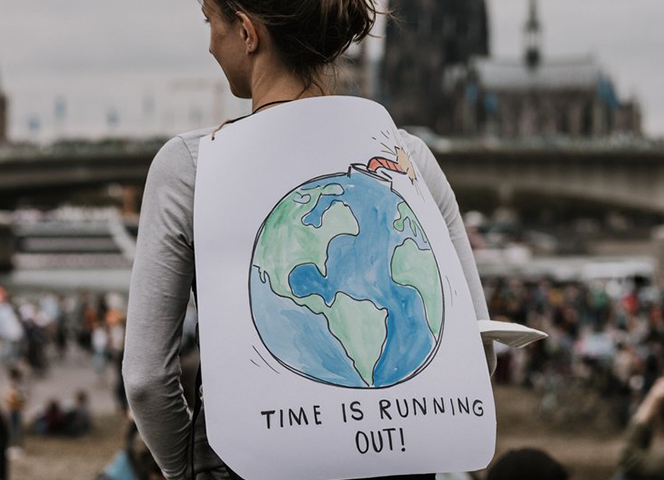An article published in March 2020 by Cianconi and colleagues has shown that climate change has a significant felt impact on we humans. This blog post will summarise the key findings and you can find the full article here.
Most of us know that climate change is one of the great challenges of our time. The consequences of climate change on human beings, as well as on vulnerable societies, are a concern for the entire scientific community. But what is the impact of all of this on our mental and physical health?
A body of work on mental health and climate change has recently emerged to answer these very questions. You won’t be surprised to know that it does in fact, affect us – and this can occur after an extreme climate event, and in some cases before.
Mental health outcomes of climate change range from minimal stress and distress symptoms to clinical disorders, ranging from anxiety and sleep disturbances to depression, post-traumatic stress, and suicidal thoughts.
Other consequences might include the effect on individuals and communities in their everyday life, perceptions, and experiences, having to cope, understand, and respond appropriately to climate change and its implications. Other reactions to extreme events involve life disruption, such as losing people we care about, or social support networks. In many cases relocation after an extreme weather event can lead to post-traumatic stress disorder (PTSD), depression, and general anxiety.
The global conversation about climate change and constant news around it can be stressful too. It can make people uncertain and stressed, even depressed and with a sense of powerlessness. Nowadays, we are all exposed to extreme events indirectly, because we have access to real-time footage on the web and through the media. As a result, it’s not uncommon to feel anxiety related to uncertainty about the survival of humans and other animals. A sense of disorientation can occur, where we feel out of control and unable to predict what will happen next.
There are a few climate-related events that have specific consequences:
HEATWAVES
Physical health, mental health, human wellbeing, and heat waves appear to be specifically interconnected. Heat stress directly caused by heat waves has been associated with mood disorders, anxiety, and related consequences.
In hot temperatures, increase in discomfort leads to increase feelings of hostility and aggressive thoughts and possibly actions. Hotter cities are shown to be more violent than cooler cities. Indeed, being exposed to extreme heat can lead to physical and psychological fatigue — there is a clear association between warming temperatures and rising suicide rates, especially in an early summer ‘peak’ (56).
Research has shown that people with mental illness are three times more likely to run the risk of death from a heat wave than those without. Women, young people, and people with low socioeconomic status have shown to be more vulnerable to anxiety and mood disorders related to disasters.
DEFORESTATION
Deforestation occurs due to the loss of plant biomass caused by climatic events and the direct action of mankind, driven by agriculture, animal grazing, and mining. News regarding these events have a stressogenic impact on western populations, due to increased ecological awareness. This is now known as a biospheric concern.
An ever-increasing number of studies shown that living in green urban spaces leads to health benefits, including better physical and mental health and a longer life expectancy. Urban green areas help maintain low temperatures in the city during the summer months, improve air quality, and reduce people’s stress level.
Studies suggest that the positive influence of nature on health can be observed especially between vulnerable groups such as the elderly, those in rehabilitation for mental disorders, and individuals in crisis rehabilitation. In the older population, contact with parks and green areas has been linked with slower cognitive decline.
Moreover, children benefit from living in greener urban areas, such as better spatial working memory, improved attentional control and capacity, and higher academic achievement, particularly in mathematics, as well as improved behaviour and emotional development, and positive structural changes in the brain.
IN SUMMARY
The impact of climate change on mental health can occur either directly with immediate effect (heat waves), or indirectly in the short term during extreme events (floods, tornadoes, hurricanes), or indirectly in the long term (changes in the territory such as prolonged droughts, increase in the sea levels, deforestation, forced migration). All these events affect the mental health of a population, with the appearance of psychiatric conditions such as PTSD, mood disorders such as depression, anxiety, increased suicide rate and substance use, as well as increased aggressive behaviour.
Climate anxiety is real – just like climate depression or climate rage. In fact it’s a reasonable and healthy response to an existential threat. One of the routes through the anxiety is to engage with your grief and your sense of loss – and then get involved in meaningful activities that can make small change. Aim to set realistic expectations for yourself, and the rest of the world. Surround yourself with people who share your values but also know that without enormous collective action, this is a global challenge that cannot be solved alone. What is needed in response to climate anxiety is both internal and external solutions that allow for self-care alongside the collective action needed to confront climate breakdown. Even though you may be focused on the big picture, it’s important to step back and consider your own health too.
This post was written by 87%. They are an exhibitor on the HRTech247 Health & Wellbeing floor in the technology hall here.






